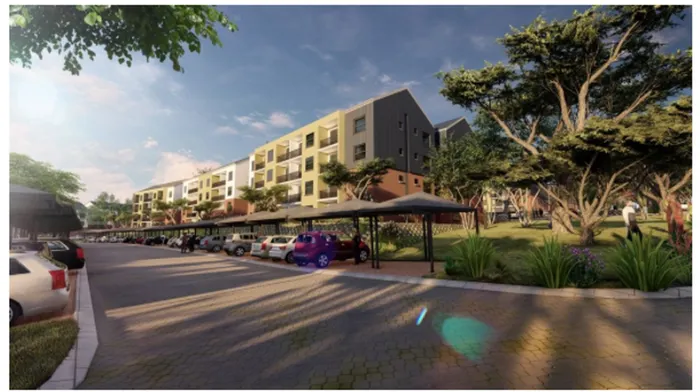Concerns expressed over B-BBEE credentials of Mooikloof Mega City project

AN ARTIST’s impression of the Mooikloof Mega City development east of the city.
CAPE TOWN - The SA Institute of Black Property Practitioners (SAIBPP) yesterday said that it was concerned with empowerment credentials of the Mooikloof Mega City Development, which is being developed by Balwin Properties and which was launched with much fanfare by President Ramaphosa last weekend
The organisation said that the property and construction sectors continued to be hamstrung by a chronic lack of transformation.
“Black ownership within the R6trillion property sector sits at less than 7percent and black developers continue to be constrained by lack of access to finance and lack of access to land, while companies that demonstrate blatant disregard for B-BBEE and transformation benefit from grants and assistance made possible by public funds,” the SAIBPP said.
The Presidential Infrastructure Co-ordinating Commission Council designated the Mooikloof Mega City development as a Strategic Integrated Project (SIP) in terms of government legislation gazetted in July.
The water and other public infrastructure for the project would be funded by the government, which was one of the factors that would help lower the price of the apartments, so that they could be bought by consumers who were earning between R3500 and R20000 a month, and who also qualified for government housing assistance, for instance, for a deposit.
The development is one of the largest of its kind in the world, with potentially up to 50000 apartments being built in phases over the next few years.
Balwin said at the announcement of the project that it would provide a much-needed economic injection in the post-Covid-19 environment and create about 115000 direct and indirect job opportunities through the life-cycle of the project.
A spokesperson said the Mooikloof project had arisen after Ramaphosa had, at the launch of Balwin’s high-end Munyaka Lifestyle Estate in March, challenged the group to launch projects that could also provide housing for the builders of Munyaka.
He said that all companies which participated in the SIP programme, such as Balwin, would need to sub-contract to a great number of smaller construction industry companies and professionals to complete the project.
And they would have to produce at least a Level 2 B-BBEE certificate.
If not, the companies should be able to demonstrate how they intended to partner with others to ensure a meaningful economic and skills transfer during and after the project.
In addition, all companies which submitted projects for the programme had to commit to procuring 40percent of all materials and professional services from South African-owned black and women-owned companies.
Also, the granting of approvals and development rights by local authorities on the development would be contingent on all of these conditions being met.
BUSINESS REPORT